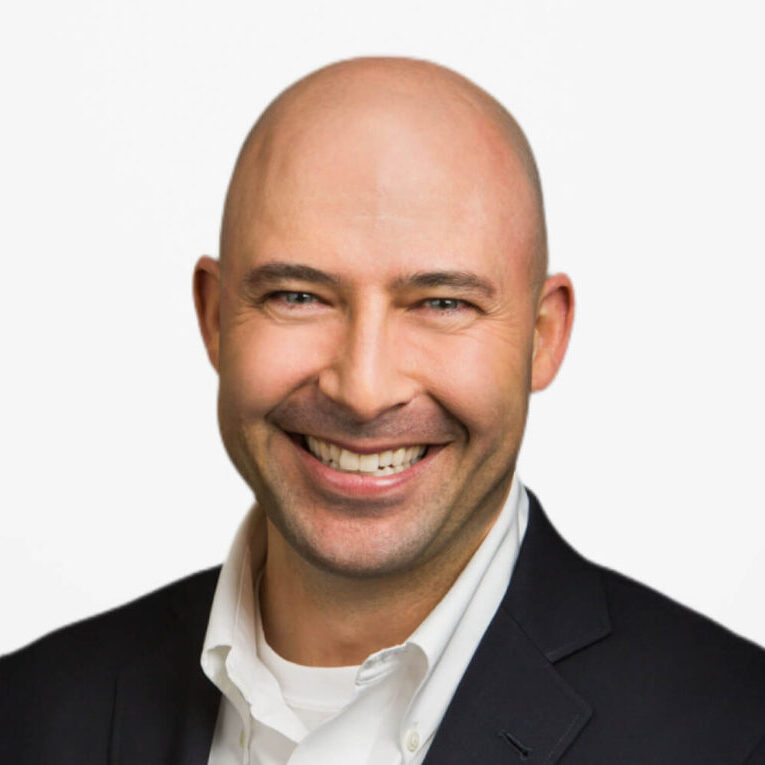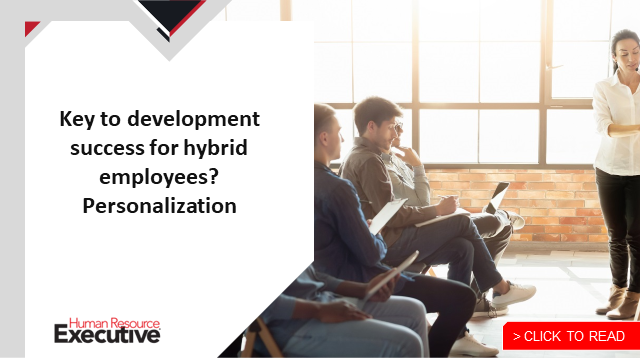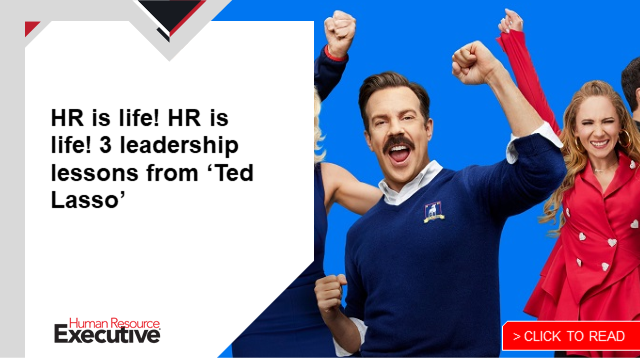When L. David Kingsley started as CHRO at customer communications platform Intercom this spring, he committed to meet one on one with every member of the HR team, especially important given the hybrid nature of the team’s work. He started each of those calls by asking the employee about their “4 Ps”: the plants, pets, people and places in their lives.
“The pandemic taught us that to include things like plants and pets [in conversations]; these were always important to us, we just hadn’t opened ourselves up at work before then,” says Kingsley, who was CHRO at Alteryx prior to joining Intercom and previously held HR leadership roles at Vlocity, MuleSoft, Salesforce and Accenture. “The pandemic humanized us as leaders, as colleagues, and I want to show that all are welcome.”
Kingsley credits his global upbringing—including time studying in France and working abroad—for his early appreciation for diversity and the value of employees being able to bring their whole selves to work. His work in HR has doubtlessly also been shaped by another early influence: His mom worked in HR in the banking industry in the 1960s and ’70s—she still refers to the profession as “Personnel,” he laughs.
He recently explored with HRE how the HR profession has changed and what he hopes to bring to his new role at Intercom.
HRE: You are Intercom’s first Chief People Officer; is that a bit unnerving to be the inaugural person in this role, or more exciting?

Kingsley: It’s more exciting than anything. When companies reach this stage, this inflection point we’re at now, they generally bring on their first CPO. This is my third time being the first CPO in a company and I really enjoy that part of the journey—where the organization says, “We’ve gotten this far. Now, where do we go next?”
HRE: What was day one on the job like?
Kingsley: Coming into the role was like drinking champagne from a firehose. There’s a lot coming at you, a lot of things folks need and want, things to focus on and help scale. And a company like ours is so focused on culture to take such an amazing product to market that it makes it interesting, enjoyable and worthwhile to do this work. I onboarded during a pandemic in what, I think, is the “now normal”—I don’t know if this is the new one but this is where we’re at today and we have to accept it with clear eyes; the now normal is hybrid.
HRE: What kind of work are you planning to do around aligning employees with company values?
Kingsley: I have our company values in a flipbook behind me on my shelf. One of our most important ones here at Intercom is that we’re obsessed with customer success. We believe at Intercom that the future of the internet business is personal. By that, I mean the level of customer expectations is higher than ever before. The demand for ongoing customer engagement is at a new height, and this was only exacerbated by the pandemic, where people took a hard look at their lives, at what they valued and what they wanted and how companies interacted with them. In business, the one-to-many approach—where a company takes a spray and pray approach to the way they message, interact, sell—all of that has gotten a lot more personal. Not only do we teach that about how we interact with our customers but it includes the way our employees are expecting the experience; that’s gotten hyper-personalized also. Our employees have high expectations for their experience, just like customers do.
HRE: How has the Great Resignation surfaced at Intercom, and what are you doing to curb that risk?
Kingsley: I’ve heard it called the Great Reshuffle and I agree with that. I think this has been all about a search for purpose; especially with a global pandemic, people have been taking stock of the things that matter to them. Where we’ve had amazing hiring movement inside Intercom is in attracting people who love working for and with a purpose-driven organization. That idea has been at the root of the Great Resignation or Great Reshuffle. We’ve been focusing on making sure we’re attracting and recruiting people who love what we do in the market because we’re definitely a product-led culture. And, our single-largest office is in Dublin, Ireland, and our headquarters is in San Francisco so we’re truly a global company; many companies say they are global but we really, truly are. We attract people who want to be a part of a global workforce—where there are many different cultures, languages, accents and ideas that people are bringing to bat.
 HRE: Technology has been a cornerstone of your career. What type of technology are you using at Intercom to advance the people strategy?
HRE: Technology has been a cornerstone of your career. What type of technology are you using at Intercom to advance the people strategy?
Kingsley: For our tech stack, we’re a Workday shop. We use Greenhouse as our ATS, Culture Amp for surveys and engagement, Lattice for feedback and 1-to-1 tracking. That said, those are table stakes. We’re going to be looking at things like the introduction of tools like Headspace to allow for mindfulness. On our people team’s all-hands meeting, before we do anything I do something called “pressing pause” to allow for a moment of mindfulness, and we usually have a team member lead that—whether it’s meditation, yoga, breathing. The next one we’re going to have someone who’s a musician play some music. The idea is how to think differently about how we come together and gather. Another area we’re focused on is family-forming benefits, and we’re looking at tech that will help evaluate where we are. I’m super-proud of the fact that we offer six months of maternity leave globally—not only in places like in Europe where it’s required but here in the U.S. as well—and we also have industry-leading paternity leave as well. I have Jack, who’s 3, Kate, who’s 2, and a new baby on the way in August so I’ll be testing out that paternity leave shortly.
HRE: What do you think is shaping up to be the biggest challenge heading HR’s way in the next few years?
Kingsley: Five or six years ago, we were seeing Uber, Lyft and Instacart come into their own as global companies, and that introduced language into our lexicon about the gig economy. These are workers who choose where they work, with whom they work, how to accomplish tasks and how to earn money. And what the last year or two have shown us is that all workers—and this includes knowledge workers—are moving to be more self-directed and I’d go so far as to argue that this is the advent of knowledge workers becoming part of the gig economy. Each of us is now thinking—within our organizations, teams, the projects we’re working on—how does this align with my skills, what I want to work on, what interests me and my values? And talent is going to be moving among teams and organizations to meet those needs. Within Intercom, we have people taking advantage of opportunities within the company to expand and grow their skill set and contribute in new ways. Other companies that may not be doing as good a job at this may see folks moving onto other organizations. This has caused us all to be more mindful of the fact that employees get a vote. And they vote with their feet if it’s not working for them.
 HRE: What is something your new colleagues may be surprised to learn about you?
HRE: What is something your new colleagues may be surprised to learn about you?
Kingsley: I was a Naval Reserve officer in the U.S. Navy for eight years. I was a direct commission and was honored to serve in that capacity. I don’t know a lot of CPOs who were also former Naval Reserve officers. Second, I went to school in a place where I learned to speak French bilingually. I was an exchange student in France, I had an internship in Brussels and did a good bit of living and working abroad. It oriented me at a young age to the idea that we are in a global world and should be thinking outside of our own culture, language, time zone, mindset; that’s critical to what we do in HR. I’m grateful for the opportunity to be exposed to that many cultures and ways of thinking at an early age and I hope it’s allowed me to be a better servant leader as a CPO.
HRE: You spend a lot of time working to keep employees motivated and engaged—how do you find motivation in your own life?
Kingsley: That’s something that’s evolved. What motivated me in my early career was what I’ll call a mountain climber mentality: “Let me earn promotions with as much speed as I can and show what I can do.” Other times in my life and career, I’ve been an adventure seeker and wanting to try new things. I moved from an HR business partner role to lead strategic operations for an HR team—which was shared services, employee relations, HRIS, etc.—so that was being a bit adventure-seeking there. Now I’m in a phase of being what I would call a deep diver. This is my fourth role leading HR in a company and I want to hone my craft as a CPO and as a C-suite leader and to deep dive into what does this mean to serve in this capacity in this discipline. This is a chance to work with a new company and learn more and more, which is just amazing. I feel like I’ve got the best job in the world to be in this role of servant leader, leading a people function that is hugely motivating on a professional level. On the personal side, I do have a young family and that is really the most motivating thing for me. It’s giving me an opportunity to reflect on what kind of person am I, what kind of leader am I, how do I show up to the world broadly? I want to be serving in a way that’s modeling what I want my children to see.
The post The ‘4 Ps’ this HR leader asks every employee about appeared first on HR Executive.